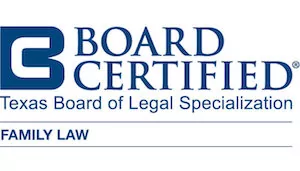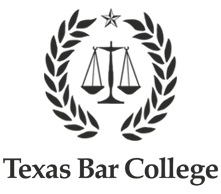
If you are looking to end your marriage and don’t know where to begin, know that you are not alone. The Ramos Law Group, PLLC, is committed to the practice of family law, and we have particular expertise in LGBT-related marriage and divorce matters. Give our team a call to discuss your case and see how we can help you protect your rights moving forward.
What to Look for in a Pearland LGBT Divorce Lawyer
Selecting an attorney for your Pearland, TX, divorce case can be a difficult decision. If you’re not quite sure where to begin, here are a few tips on what to look for in a Texas divorce lawyer.
Passion for Family Law
Any licensed lawyer can technically represent you in a divorce proceeding. However, for something as important as your divorce, where there are many moving parts and a number of complications that could arise, you don’t want to work with just any lawyer.
Rather, it’s important to work with a firm that focuses exclusively on divorce and family law matters. Thus, be sure to select an attorney that has a passion for and specializes in this area of law.
At the Ramos Law Group, PLLC, family law is our bread and butter. In fact, this is our sole area of practice. Moreover, our founding lawyer Mary E. Ramos is Board Certified in Family Law by the Texas Board of Legal Specialization.
Experienced and Well-Trained Attorneys
Family law and divorce matters are complex and frequently involve in-court litigation. Nobody becomes a successful family law attorney overnight, and the best Texas divorce lawyers hone their skills through in-depth training and extensive practice.
That’s why we’ve made it a focus at our firm only to hire top talent to ensure our clients only receive the best representation possible. But more than that, we have also emphasized continuing education and training through annual advanced family law training courses and a mandatory 2-year training period for all new lawyers before they handle highly contested cases.
Quality Reviews
Last but certainly not least, don’t forget to look at reviews. Whether positive or negative, reviews can provide valuable information about a prospective divorce attorney.
We’re proud to have received many high-quality reviews from our many former clients, and we hope to earn your trust too.
When an LGBT Divorce Attorney in Pearland May Be Helpful
Some divorces may be uncontested, which can greatly simplify the process. However, to finalize an uncontested divorce, both parties must agree to all terms of the divorce.
While this may sound simple in theory, the reality is that going through a divorce can frequently become contentious. For example, disputes frequently arise when it comes to matters concerning:
- Property division,
- Debt allocation,
- Child custody and visitation,
- Child support,
- Spousal maintenance or alimony, and
- Division and valuation of business interests.
Additionally, certain aspects of LGBT divorces can become especially complicated. For instance, many same-sex couples rely on adoption or assisted reproductive technology to have children. This can later raise legal issues pertaining to the rights of the non-adoptive or non-biological parent in the course of divorce proceedings.
In these and many other scenarios, having the assistance of an attorney with a particular focus on LGBT rights can be invaluable to the success of your case moving forward. An experienced attorney can help you:
- Understand your legal rights, remedies, and options;
- Prepare and submit important court filings;
- Navigate LGBT-specific issues pertaining to your case;
- Gather evidence to support your claims;
- Negotiate a potential settlement with your spouse and their legal counsel; and
- Appear and present your best arguments in court.
In short, an attorney can provide legal expertise and fierce advocacy on your behalf so that you can continue focusing on what matters most—the well-being of you and your family moving forward.
Speak with a Pearland LGBT Lawyer Today
No matter the circumstances, making the decision to end your marriage is never easy. Nevertheless, doing so may ultimately be what is best for you.
If you’re looking to take the next step toward ending your marriage, look no further than the Ramos Law Group, PLLC. Our mission is to empower our clients and help them heal by providing them with not only the best legal representation but also quality support, education, transparency, and advocacy. Give us a call to schedule a consultation to discuss your case and see how we can help you move forward today.
FAQs
Are LGBT Couples Entitled to Divorce in Texas?
Yes, just as heterosexual couples are entitled to divorce in Texas, so, too, are LGBT couples. Although current Texas law still states that, “A marriage between persons of the same sex or a civil union is contrary to the public policy of this state and is void in this state,” the Supreme Court’s ruling in Obergefell v. Hodges effectively overturned this outdated statutory language. Thus, LGBT couples may both validly enter into marriage and obtain a divorce in Texas.
Do I Need a Pearland LGBT Divorce Lawyer for My Case?
There is no law in Texas requiring parties to obtain a lawyer before proceeding with their divorce. That said, this doesn’t mean that having an attorney isn’t highly beneficial. At the end of the day, going through a divorce is often a complicated legal process, and having an experienced LGBT divorce attorney in your corner can go a long way toward obtaining a fair and favorable outcome.
How Is Property Divided in an LGBT Divorce in Texas?
In Texas divorce proceedings, the property will be divided for LGBT couples in the same manner as for heterosexual couples. Texas follows the principles of community property, meaning that any property acquired by either party during the marriage will be deemed community property of both spouses, subject to division during the divorce proceedings.










